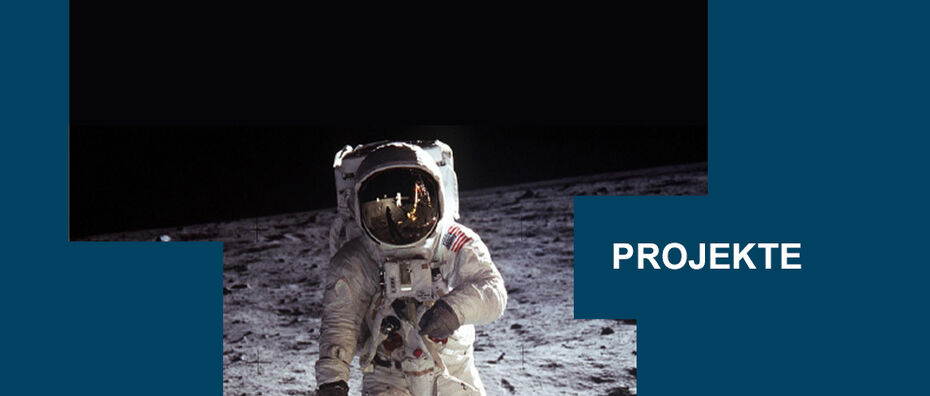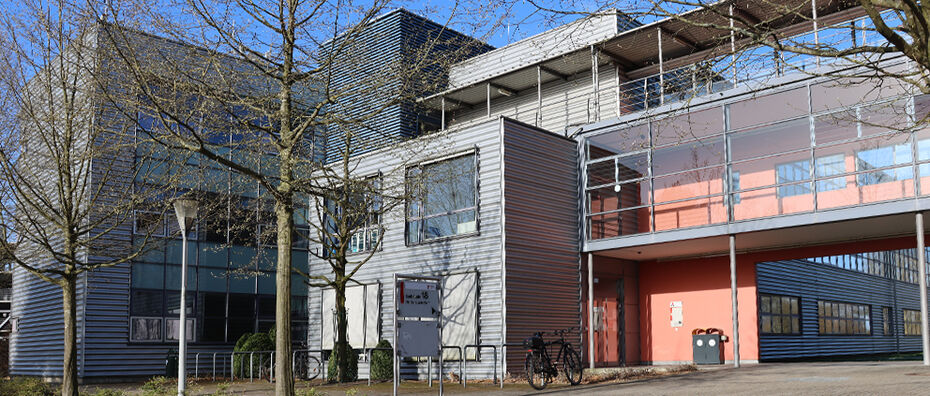Expertise at TH Lübeck
At TH Lübeck, we possess a wealth of expertise in computer science, laying the foundation for the science behind Smart Cities. We excel in the development of digital technologies applicable to Smart Cities, with a keen focus on both existing building infrastructure and the mobility sector. In addition to the necessary theoretical knowledge, we also have the practical skills to implement digital solutions in real-world infrastructure. Bridging the gap between machines and cities is where we thrive. Moreover, we are familiar with the economic and social dynamics that underpin the Smart City concept.

Institute for Interactive Systems (ISy)

Photo: ISy
The Institute for Interactive Systems (ISy) is one of TH Lübeck's centers of excellence. We conduct numerous third-party funded research projects focusing on the development of interactive systems and technologies.
Among our areas of expertise are digital education, computer-aided communication and cooperation, and human-centered design.
Communication, Systems, Applications (CoSA)

Photo: CoSA
CoSA has been researching and developing communication systems, distributed systems, and their applications for more than 10 years.
We successfully support regional partners in joint research and development projects and work intensively with companies in applied research in more than 25 cooperation projects.
Applied Business Analytics
The Applied Business Analytics research consortium promotes the application of quantitative methods in projects with local businesses and in business education.
We conduct application-oriented research by developing practical solutions for data-driven business decisions, particularly for small and medium-sized enterprises (SMEs).
Institute of Applied Economics (IAW)
The Institute of Applied Economics at the Department of Mechanical Engineering and Business Administration concentrates research and project competencies in economics and business administration within the department. The interdisciplinary structure of the institute brings together relevant expertise in economics and business administration under one roof and promotes interdisciplinary cooperation.
Learn more >>
Cyber-Physical & Human Systems
The Cyber-Physical & Human Systems (CPHS) research group revolves around cyber-physical computer systems and human interaction. Cyber-Physical Systems (CPS) emerge from the interconnection of embedded systems through wired or wireless communication networks.
The multidisciplinary research of CPS explores various application areas, including medical systems, assistance systems, control, automation, and logistics systems, security systems, environmental impact, and observation systems, as well as communication and culture, for example in the context of a digital twin.
Smart Energy
The Research Center for Intelligent Energy Use (WiE) is an institution dedicated to research, knowledge transfer, education, and dialogue in the field of modern energy supply and energy management.
WiE addresses both technical and economic aspects within the context of energy transition, such as smart grids, the intelligent expansion of energy infrastructure, and smart regional energy use.
Learn more >>
IT Security
Digitalization enables us to tap into potentials for increased prosperity, quality of life, and sustainability in all aspects of our lives. Consequently, IT security, privacy, and data protection play an increasingly crucial role in both the workplace and our daily lives.
The research group IT Security embeds the interdisciplinary issue of IT security in research, promotes the transfer of knowledge to the business sector, and integrates it into on-site and online education..
Learn more >>
Artificial Intelligence in Applications (KIA)
Our goal is to demystify artificial intelligence (AI) and pragmatically explore, demonstrate, and apply its possibilities and challenges with a broad range of technical expertise spanning all departments of TH Lübeck.
We strive to apply AI pragmatically and purposefully in various scenarios. Our AI guidelines guide us in identifying innovative use cases with partners and applying them responsibly, securely, transparently, and user-centered.
Learn more >>
Sustainable Planning, Construction, and Operation
The construction and operation of buildings inevitably affect the environment. Sustainable planning, construction, and operation make it possible to implement these within our planet's performance limits. Preserving our natural habitat creates social and economic value for the local, regional, and global community.
This necessitates the sustainable use of natural resources and long-term preservation of acceptable climate conditions.
Learn more >>
Urban Studies
The Urban Studies research consortium includes the disciplines of Sociology of the Built Environment, Urban Development and Planning, Urban Development and Design, and Architectural History and Urban Culture. Through close collaboration, it pursues an interdisciplinary approach to urban development and planning in teaching, research, and application.
The Urban Studies research consortium is committed to sustainable urban development and engages in teaching and research at all levels.
Learn more >>
Climate and Environmental Protection
The Climate and Environmental Protection group at TH Lübeck was founded as an initiative of the Environmental Engineering and Management degree program with the aim of contributing to the concrete development and implementation of measures in practical environmental and climate protection.
This is achieved through research projects and services and the promotion of systemic thinking and the dissemination of practical and sustainable methods in teaching.

Integrated Planning, Construction and Operation
Construction projects are characterized by a multitude of different stakeholders. This results in a large number of interfaces that often hinder the projects. Networked planning, construction and operation will therefore be absolutely essential in the future.
At the same time, due to increasing digitalization, Building Information Modeling (BIM) will become a major focus for everyone involved in construction in the coming years.
Learn more >>